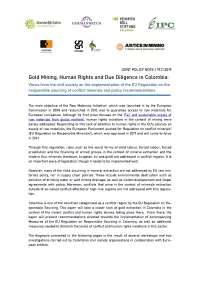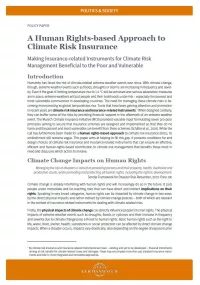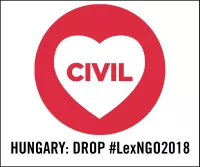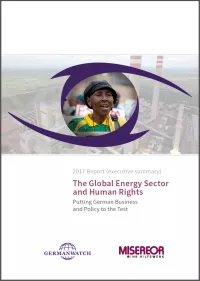
Colombia is one of the countries categorised as a conflict region by the EU Regulation on Responsible Sourcing. This paper will take a closer look at gold extraction in Colombia in the context of the violent conflict and human rights abuses taking place there. From there, the paper will present recommendations directed towards the implementation of Accompanying Measures of the EU Regulation on Responsible Sourcing in Colombia, as well as additional measures needed to diminish the levels of conflict and human rights violations in this sector.





